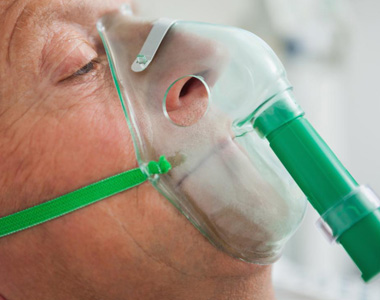
As with other serious medical conditions, you may find being diagnosed with idiopathic pulmonary fibrosis (IPF) to be a confusing and overwhelming experience. Because IPF is such a serious disease, people living with it experience a number of challenges that often come with a range of feelings. These may include:
- Exhaustion from simple, normal activities
- Anxiety and fear of anticipating a decline in their ability to function
- Fear of becoming a burden on family and friends
- Feeling less sexually attractive (especially if using oxygen therapy)
- Concern about using up family financial resources on healthcare costs
- Less desire to participate in social activities
- Difficulty maintaining relationships
- No longer desiring to travel because it is too burdensome
You may want to work with your family doctor and other healthcare professionals to try to find strategies to cope with these feelings.
Experts recommend that healthcare teams carefully evaluate their IPF patients’ support systems and their ability to cope with the challenges of IPF. This assessment can help the team determine what type of support may be required so they can help patients find the resources they need. Psychological and spiritual support should be considered as part of the comprehensive care of IPF patients. This comprehensive approach has been shown to help enhance the daily lives of IPF patients and may help reduce their fears about the progression of IPF.
Read information with advice on how to work with your family doctor to help get the best possible care.
Taking Care of Your Mental and Emotional Health
Studies show that depression among people with IPF is very common. If you have any of the symptoms described below, talk to your healthcare team:
- Feelings of hopelessness and helplessness
- Change in sleep patterns
- Weight gain or weight loss
- Loss of pleasure or interest in things you usually like to do
- Social isolation
- Fatigue
- Feelings of worthlessness
Your healthcare team can help get you counseling and even prescribe medicines if they determine that’s what you need.
Other Important Tips to Consider:
- Get vaccinated. It’s recommended that all IPF patients receive a yearly flu vaccine and a pneumonia vaccine every 5 years; vaccination is critically important to preventing illnesses that can further worsen lung function.
- Take part in pulmonary rehabilitation (when prescribed). Pulmonary rehab has been shown to improve the ability to exercise in people with IPF; it also has been shown to improve a person’s understanding of IPF and reduce their anxiety and depression about it.
- Use oxygen therapy. If your doctor has prescribed oxygen therapy, you should use it according to your doctor’s instructions. Many people with IPF find that oxygen therapy helps reduce their feelings of breathlessness.
Get Support
As with patients who have other serious health conditions, patients with IPF may find it helpful to join a patient support group to reduce their anxiety and find comfort. Experts agree that giving people with IPF access to support groups may contribute to helping them address their unique needs. If you are interested, ask your doctor or check with a local medical center to see if there are IPF support groups in your area. Joining an IPF patient support group may help you adjust to living with IPF and learn more about it. You can meet other people who have the same symptoms and find out what they do to cope with them.
There may not be a local IPF support group in your area, and maybe you can’t or don’t want to travel to the nearest one. Or, perhaps there is a local support group, but you would rather not attend in person. If so, another option to consider is to join an online IPF support group. They can offer many of the same benefits, while the information and support they provide can be accessed from the comfort of your home.











